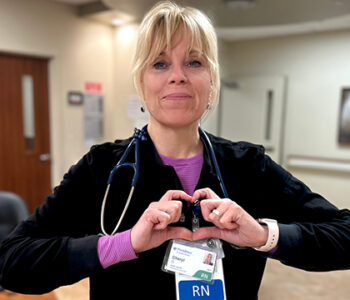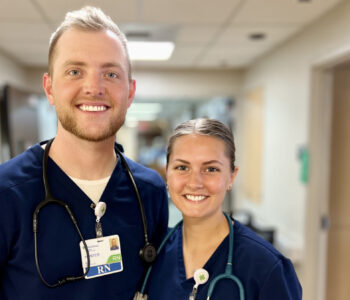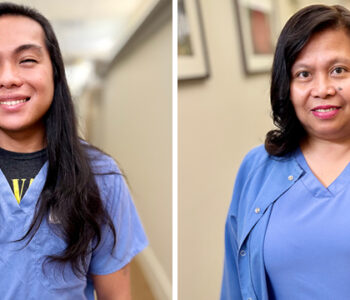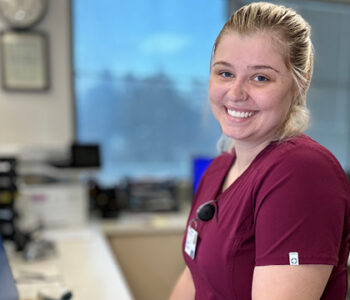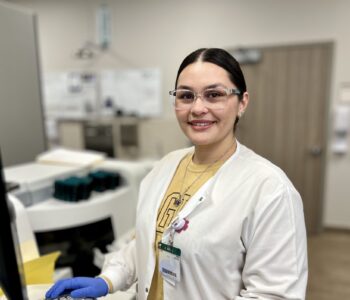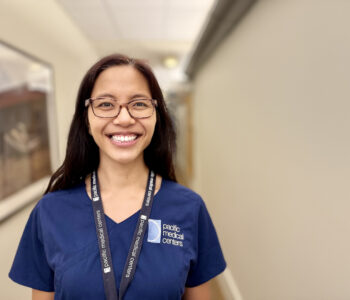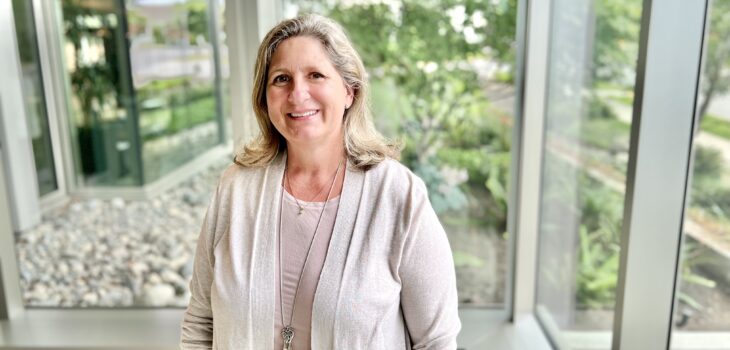 Caregiver Stories
Caregiver Stories
Insider views: 5 questions with an RN fellowship educator
November 17, 2022
Our Providence family of organizations are committed to nursing excellence and one of the ways this shines is through RN fellowships. We believe every nurse should have access to a structured curriculum, preceptor guidance and hands-on learning when transitioning specialties—so we offer fellowships through the Providence Clinical Academy, a nationally accredited, evidence-based program. With more than 24 specializations, fellows can choose to work where they’ll thrive most, allowing our nurses to grow and expand their skills while ensuring Providence best supports the communities we serve.
We talked with Jennifer Navarro, an educator in the RN Fellowship program at Providence Everett Regional Medical Center, to learn more about the program and what it offers to nurses who want to take the next step in their career.
What is the role of an RN educator?
It can look different, but for me personally, I’m an educator for RNs that are not new to being an RN, they’re new to specialty. So, they might have worked on the telemetry floor or the oncology floor, and they’ve decided they want a change. We call it Transition into Practice and they do a roughly 12-week fellowship with me.
What drew you to this role as a fellowship leader?
I’ve had a whole bunch of different kind of roles in my career, which has been fun because I’ve been able to learn. Like a nurse who wants to transition into a new practice, I’ve done that myself. So, I can understand how it’s exciting and intimidating at the same time—and I wanted to bring that understanding to the role.
How do nurses learn about their new specialty?
The model we follow starts with individual pre-learning on the Moodle platform provided by the University of Providence. So they have some knowledge base, and then we expand on that in class together. That’s where we teach skills and provide more in-depth information. Then all of that parlays into hands-on skills that the new specialty entails, under the guidance of a preceptor on the floor. So it’s multistep process to help them feel comfortable in their new role.
How do RNs develop their skills?
All of the skills nurses need to know, we practice in the simulation lab. Then they take what they’ve learned and what they’ve practiced, and they bring it to the floor with their preceptor. That’s when they’re doing real hands-on care with patients under the guidance of the preceptor. It’s a good meld of learning modalities that helps people with different kinds of learning styles.
What do you hope nurses get out of the fellowship program?
When I work with Fellows as they go into a new specialty, I’m hoping that they come out with confidence that they have core knowledge and skills under their belt. They can go into it confidently as an advanced beginner knowing that they have the tools to be able to do the job in a safe manner for their patients. I believe it provides a strong foundation and a steppingstone to be able to excel and grow in their field.
Pursuing the highest nursing excellence
One measure of our commitment to nursing excellence is designation programs accredited by the American Nurses Credentialing Center. We’re proud that, last year, this translated into:
- 13 Magnet designations across six states
- 23 ANCC Practice Transition Accreditation Program designations across six states
- And four Pathway to Excellence Program designated facilities.
If you’d like to work at an organization committed to empowering you in the next phase of your nursing career, see our open RN Fellow positions here.




